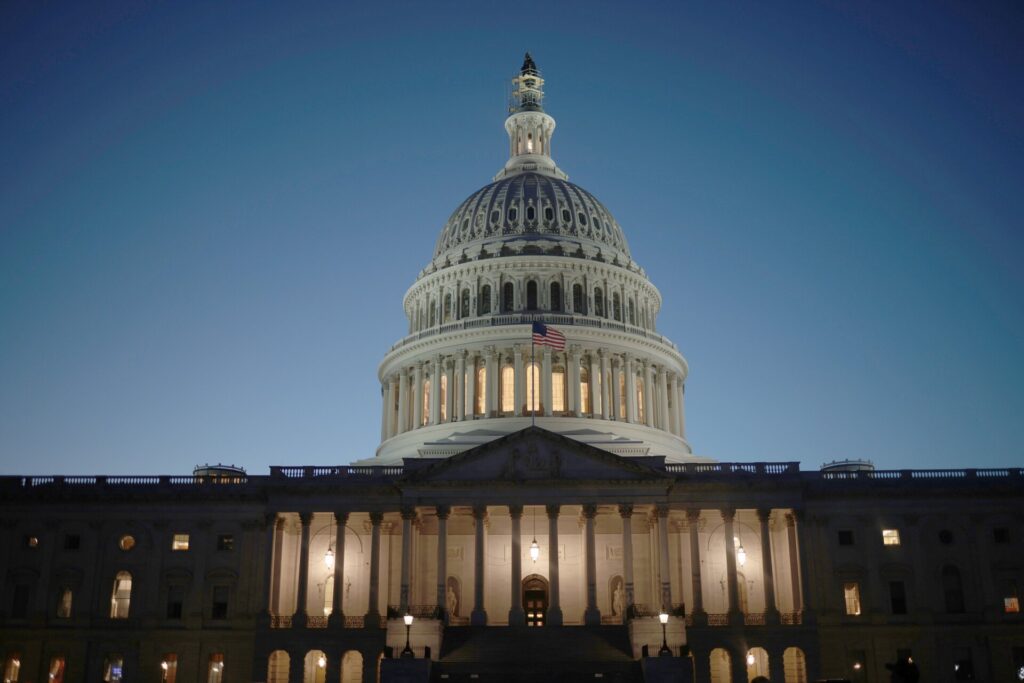OpenAI announced on Tuesday a new version of ChatGPT tailored specifically for government use. ChatGPT Gov, as it is called, appears to be something akin to giving Malibu Stacy a new hat.
The major difference between this version and the commercial chatbot, according to CNBC, is that with ChatGPT Gov, public agencies can feed “non-public, sensitive information” into OpenAI models hosted within their own Microsoft Azure commercial cloud, or Azure Government community cloud, and manage their own security and compliance requirements.
The new version of ChatGPT is not yet approved for government use on non-public data, but of course, OpenAI CEO Sam Altman has been aligning himself closely with Trump in hopes of accumulating influence, and the company’s head of product Kevin Weil told reporters it hopes that could help grease the wheels of bureaucracy. “I know President Trump is also looking at how we can potentially streamline that, because it’s one way of getting more modern software tooling into the government and helping the government run more efficiently,” Weil said. “So we’re very excited about that.”
OpenAI has released other versions of ChatGPT, including one built for universities that essentially gives students higher message limits and controls for university IT administrators.

OpenAI demonstrated ChatGPT Gov to reporters, and the applications are more of the same features we have come to expect:
Aaron Wilkowitz, a solutions engineer at OpenAI, showed reporters a demo of a day in the life of a new Trump administration employee, allowing the person to sign into ChatGPT Gov and create a five-week plan for some of their job duties, then analyze an uploaded photo of the same printed-out plan with notes and markings all over it. Wilkowitz also demonstrated how ChatGPT Gov could draft a memo to the legal and compliance department summarizing its own AI-generated job plan and then translate the memo into different languages.
In the first few days of his new term, Trump’s administration has been accused of using AI to write a flurry of executive orders that have been described as sloppy and hard to understand.
Security of non-public data has been a major concern surrounding the use of commercial chatbots in the workplace. Early on in the chatbot fervor of 2023, major corporations blocked their employees from accessing the likes of ChatGPT and Claude over fears the models would ingest proprietary corporate data. And Microsoft’s own chatbot for enterprises, called Copilot 365, has received criticism for inadvertently oversharing sensitive data with employees not granted permission to see it.
Another concern with the use of AI in government is that it is prone to error and could display bias. It has already been shown repeatedly that AI systems have been used to tie people to crimes, leading to false arrests when law enforcement relies too much on the systems. Years ago, ProPublica published an investigation looking at how judges across the country were using AI to decide whether or not to grant bail to defendants. The system was less likely to suggest offering bail to people from poorer neighborhoods with higher crime rates, therefore biasing the system against them. But AI speaks with confidence and makes people complacent even though it is a glorified autocomplete; users are prone to accept what it says as fact.
OpenAI “acknowledges there are special considerations” for government use of AI,” and that users still must comply with its usage policies.
Altman is trying his best to gain power and influence in Washington, stoking fears that China’s artificial intelligence is a major threat to America and simultaneously offering the solution—even though generative AI’s true value remains up for debate. ChatGPT Gov seems another attempt to entrench his company as quickly as possible. President Trump says he is dedicated to beating China in the artificial intelligence race; he says jump, and Altman asks, “How high?”







